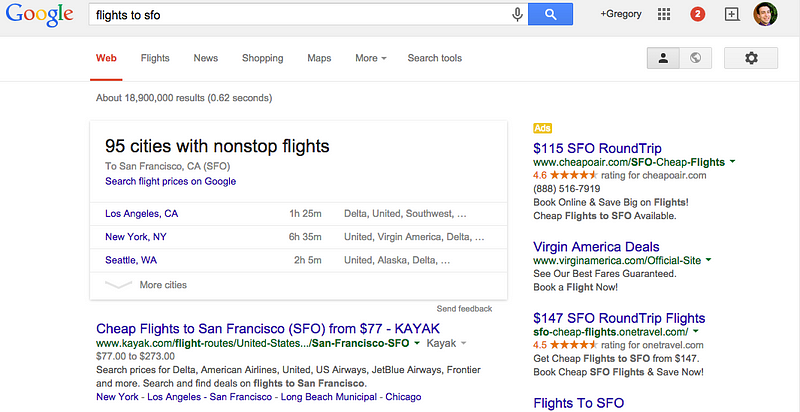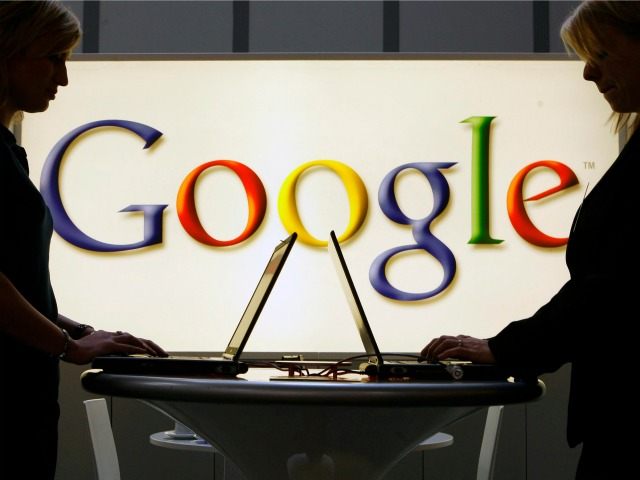
Google’s entire multi-billion dollar software utopia is designed to find the perfect search result. Back in 2005, before American and European Union government regulators painted Google as a monopoly, now-chairman Eric Schmidt was quite open about the search giant’s endgame. He believed that Google should only give one search result for each inquiry.
“When you use Google, do you get more than one answer? Of course you do,” he told public television host Charlie Rose at the time.
Well, that’s a bug. We should be able to give you the right answer just once. We should know what you meant. You should look for information. We should get it exactly right.
This makes the European Union’s current case against Google rather misinformed. Among many objections, regulators charge that when Google prioritizes its own services and partners in search results, it’s snuffing out the competition.
Google routinely does this, placing certain items above the search results, such as when consumers are looking for flights or hotels. In the screenshot below, flight search engine Kayak loses out to Google’s own suggestions.

One of Google’s leads on artificial intelligence, futurist Ray Kurzweil, told me that the company should eventually predict answers before users even know to ask them. He calls this Google’s “cybernetic friend” — software that knows you better than you know yourself.
This could be fantastic for consumers. If we’re searching for headache treatments, Google could alert us to a flu epidemic in town. If we’re concerned about housing policy, Google could tell us about an upcoming county board meeting. It could make us healthier, more productive, and civically engaged.
But, by design, Google is on a path to monopoly. So, either Google is inherently illegal, or monopoly laws must change to fit new business models.
The Ferenstein Wire is a syndicated news service. For inquires, email the editor at greg ferenstein dot com.

COMMENTS
Please let us know if you're having issues with commenting.